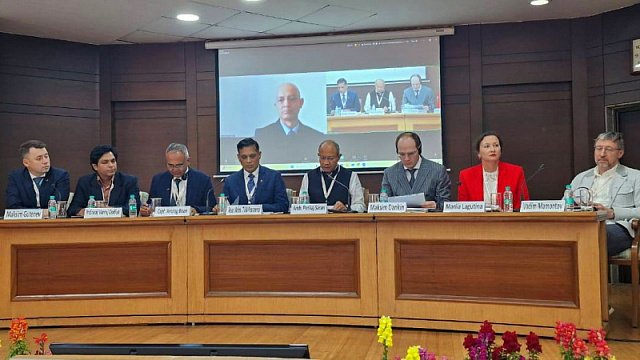21.03.25
19:25
Maksim Dankin, General Director of Project Office for Arctic Development: region needs international research
He said this at the International Forum “Uniting North and South for Sustainable Development”
New Delhi presented the results of a study in which experts analysed the strategies of the Arctic Council states for the development of this polar region. They also analysed (with the help of artificial intelligence) how the image of the Arctic in the media has changed over time in 10 countries. According to the data obtained, today it is a strategic macro-region, a research laboratory, and a tourist attraction.
Specialists from the Project Office for Arctic Development (PORA) studied the current topic. Its General Director Maksim Dankin, who spoke at the conference, expressed confidence that today public diplomacy has become the driver of the Arctic macro-region’s development.
“Through the dialogue of non-profit organisations, scientific centres, youth movements, we can and must restore the attitude to the Arctic as a unique territory with non-trivial tasks, the solution of which will benefit not only the Polar region, but also the whole world. There is a need for joint research in the Arctic, analytical products, as well as joint implementation of educational, outreach and tourism projects,” he said.
In New Delhi, a memorandum was signed between the Vivekananda International Foundation (VIF) and the Project Office for Arctic Development (PORA), which, according to conference participants, was an important step in strengthening bilateral cooperation between Russia and India in the field of international research and sustainable development of northern territories. Experts believe that this agreement also confirms the growing interest of the BRICS in the development of the Arctic and its importance for the global economy, ecology, and logistics.
The International Forum “Uniting North and South for Sustainable Development” is taking place in New Delhi from 20 to 22 March.
Photo: Project Office for Arctic Development (PORA)
Back

